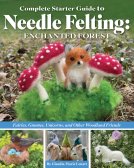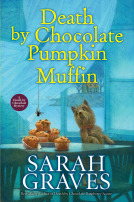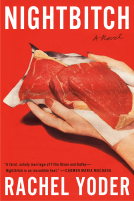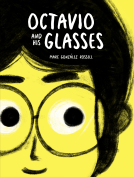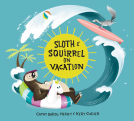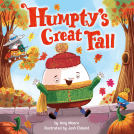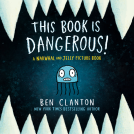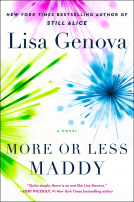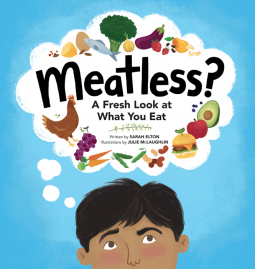
Meatless?
A Fresh Look At What You Eat
by Sarah Elton
This title was previously available on NetGalley and is now archived.
Send NetGalley books directly to your Kindle or Kindle app
1
To read on a Kindle or Kindle app, please add kindle@netgalley.com as an approved email address to receive files in your Amazon account. Click here for step-by-step instructions.
2
Also find your Kindle email address within your Amazon account, and enter it here.
Pub Date May 16 2017 | Archive Date Jun 19 2017
Owlkids Books | Owlkids
Description
Journalist Sarah Elton tackles the topic by explaining what vegetarianism is, why people choose it, and how their reasons—including religion, animal rights, food security, and the environmental cost of eating meat—have changed over time. The book closes with practical tips for making the switch, and perspectives from vegetarian kids.
As a conflicted meat eater herself, Elton encourages freedom to choose. Lively illustrations, sidebars, and sources, plus a glossary, index, and further reading suggestions make this a friendly, comprehensive introduction to why some people eat meat, why others don't, and what kids might consider when making that choice for themselves.
LEVELING
Grade Range: 4–8
Fountas & Pinnell: T
Lexile: 1020L
COMMON CORE
W.5.1,2,4,6,7,8,9,9b,10
SL.5.1,1a,1c,1d,2,3,4,5,5
RF.5.3,3a,4,4a,4c
L.5.3,4,4a,4b,4c,5,5a,6
RI.5.1,2,3,4,5,6,7,9,10
A Note From the Publisher
– Topical, popular subject with ties to current events
– Global-minded with examples of vegetarian cuisine from around the world
– Includes glossary, sources, index, and list for further reading
Available Editions
| EDITION | Other Format |
| ISBN | 9781926818436 |
| PRICE | $16.95 (USD) |
| PAGES | 48 |
Featured Reviews
 Librarian 356790
Librarian 356790
Meatless is a much-needed addition to our public library.
The author presents reasoned arguments for both eating or not eating meat, and provides helpful dietary commentary on making sure that children who decide to become vegetarian will still get the necessary proteins and vitamins.
One page in particular was very heartwarming, reminding readers to always make room for everyone at the table. Eating is a very social activity, and it's important to be inclusive while still maintaining your own eating values and preferences.
Overall, very well researched, and very well presented. Highly recommended, especially for school and public libraries.
This was a great book for kids about vegetarianism! It also spoke to the kids who might not be vegetarians, but are thinking about it, as well as vegans and pescatarians. I thought it explained why abstaining from eating meat is good for your health as well as the environment. It even explained why some religions don't eat certain meats, or cook it a certain way. This is a great one for any collection!
Meatless?, by Sarah Elton is a very educational book for children to understand just what it means to be a meat eater. It answers questions about where meat comes from, environmental cost, greenhouse gasses, and other food options. It also explains the differences between being vegetarian, vegan, flexitarian, and pescatarian.
I was thoroughly amazed at the amount of information in this book. It leads children to start thinking about their own food choices. The book isn't for or against meat, and just explains the simple facts. I loved how the author explained greenhouse gasses, as this is something our children are hearing more about daily.
I enjoyed the sample menu, further reading, and recommended vegetarian cookbooks in the back.
Overall 5*****
 Carla J, Reviewer
Carla J, Reviewer
Meatless? By Sarah Elton had so much more information that I was expecting. This is a very educational book for middle grade (junior) children to understand what it means to be a meat eater. It discusses things such as where meat comes from, the environmental cost (cutting down forests etc.), greenhouse gasses, and other food options. It also explains the differences between being vegetarian, vegan, flexitarian, and pescatarian. It also talked about various religions and what they believed. The way it was presented was easy to read and interesting. It would help children make decisions about how they want to eat, and what they want to eat. The book doesn't try to sway anyone to be for or against meat, it just explains the simple facts. The author even included a weeks menus showing how you could eat without meat for one week. The back of the book contained a glossary, further reading suggestions and even recommended some vegetarian cookbooks. I liked that the book talked about accommodating everyone's eating style at your home so they feel welcome. A good book to be used with youngsters asking these types of questions, those considering a change in their eating habits as well as when you are teaching about the environment and the impact raising animals for meat has.
 Critter B, Librarian
Critter B, Librarian
Meatless? is an excellent book for young readers. The book answers a lot of questions about meat-eating and vegetarianism, in a way that is unbiased and easy to understand. Author Elton covers the many different reasons for not eating meat, and does not malign meat-eaters for making the choice to eat meat. The book does not state that any eating preferences are inferior.
There are tips for children who wish to try going vegetarian. Readers are urged to be tolerant of family and friends' diets, to include everyone when preparing meals, and to try to offset any trouble that they may cause by changing their diets.
Nutrition is also included, so that children who want to go meat-free know how important it is to eat healthily. Meal plans are included, but no recipes. I think the book would be better for including a dozen or so easy, healthy recipes to illustrate how easy preparing vegetarian meals can be. Other than that, I really liked the book's fair tone, extensive information and ease of understanding. Very colorful and comprehensive.
 Montzalee W, Reviewer
Montzalee W, Reviewer
Meatless? A Fresh Look At What You Eat by Sarah Elton is a book about choices. The book starts out by talking about meat and where different meat is eaten and and why. Then the different types of vegetarian classes. Who eats what. Then it is discussed why religions may effect a persons choice. Other reasons such as climate change, conservation, humanity, person choice, health reasons, etc. Then it talks about how it is possible for many people to eat at a table together that have various meal choices that differ. The book mostly emphasizes that is the reader's choice what they want to eat, not anyone else. This book is just to clear up any misunderstandings and give the reader choices and information they may not have had before. Great book. Very informative and lays out the information without pushing any agenda, religion, or meal choice. Thanks NetGalley for letting me read this book.
 Marzie K, Reviewer
Marzie K, Reviewer
After recently reading this article* in the Washington Post, in which an online survey found 7% of people surveyed thought chocolate milk could mes from brown cows, and an study in 2011 found that only 22% of all 4-6th graders know pickles are cucumbers, I thought reviewing a few books about food and farms would be a good plan.
Meatless is an excellent primer on vegetarianism, veganism or even flextarianism as alternative diets. There are so many reasons, well described, from animal welfare to limiting greenhouse gases for vegetarianism. The book gives a thorough grounding in the ethics, the pragmatics and even offers example meal plans. Targeting a Middle School reader, the book is an accessible read. Since I was a strict vegetarian from age 12-24, I appreciate the admonishments about the need to eat a diet balanced in protein, minerals and vitamin B12. All in all, a great book for those looking to learn more about going meatless!
*https://www.washingtonpost.com/news/wonk/wp/2017/06/15/seven-percent-of-americans-think-chocolate-milk-comes-from-brown-cows-and-thats-not-even-the-scary-part/
This is a great book for any family. It is very educational & very easy to understand. There is a lot of very useful information. A must read.
 Donna M, Reviewer
Donna M, Reviewer
This was an excellent book. Great layout and full of facts and great detail - definitely a five star read for me!
 jessica d, Reviewer
jessica d, Reviewer
The number one fact that made me love this book was the way the author presented a number of reasoned arguments for both eating or not eating meat. The book was full of very very helpful dietary commentary and treated arguments like vegtarianism in kids, and how to make sure they get all the vitamins and other things they need to grow up healthy. I highly recommend it.
Readers who liked this book also liked:
L.M. Montgomery, Crystal S. Chan, Kuma Chan
Children's Fiction, Comics, Graphic Novels, Manga, Teens & YA
